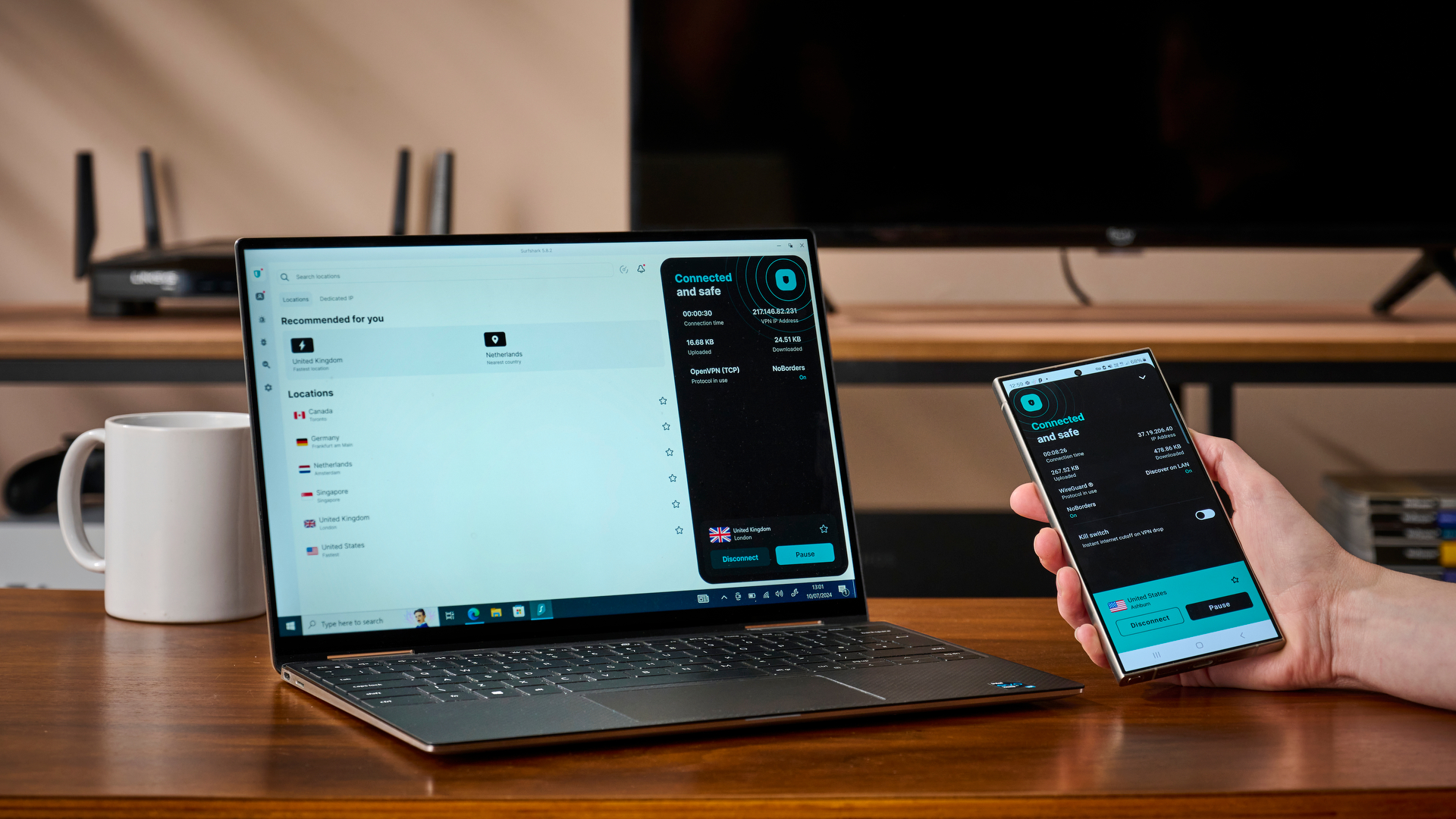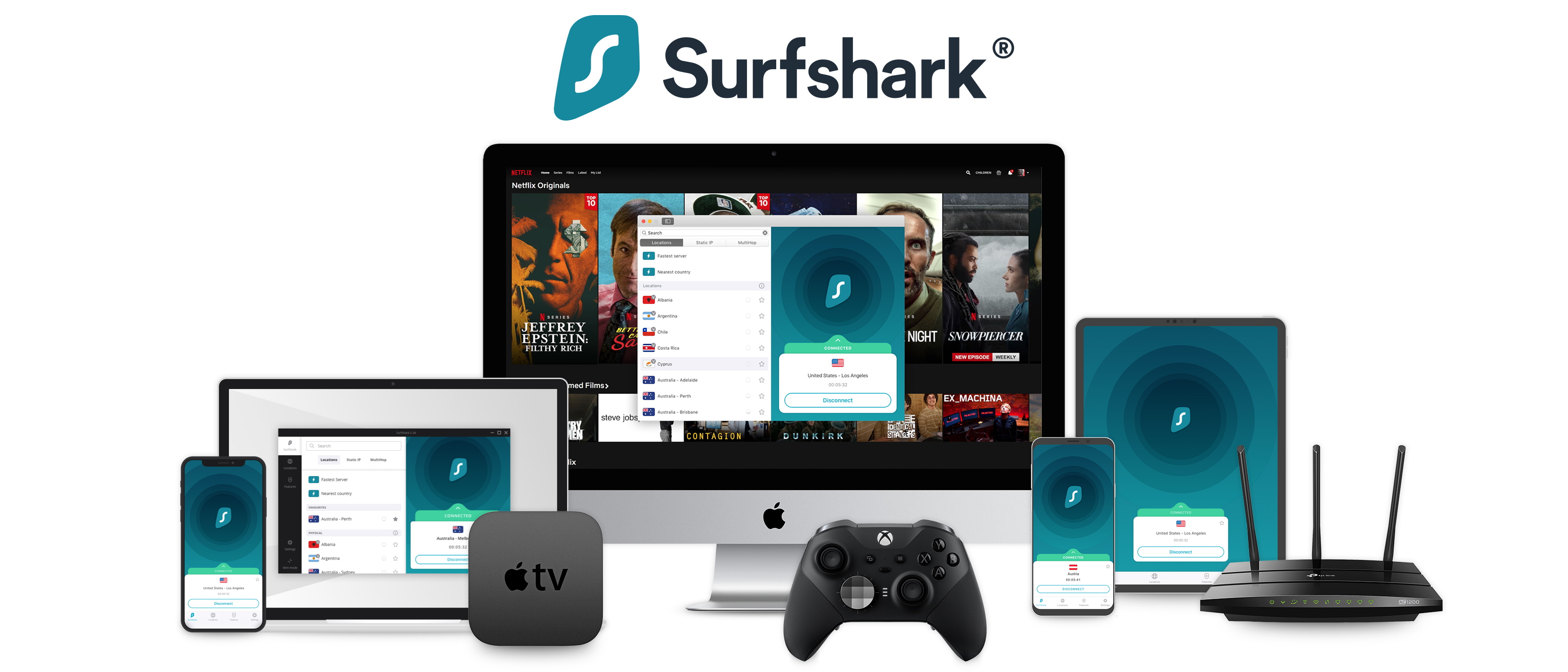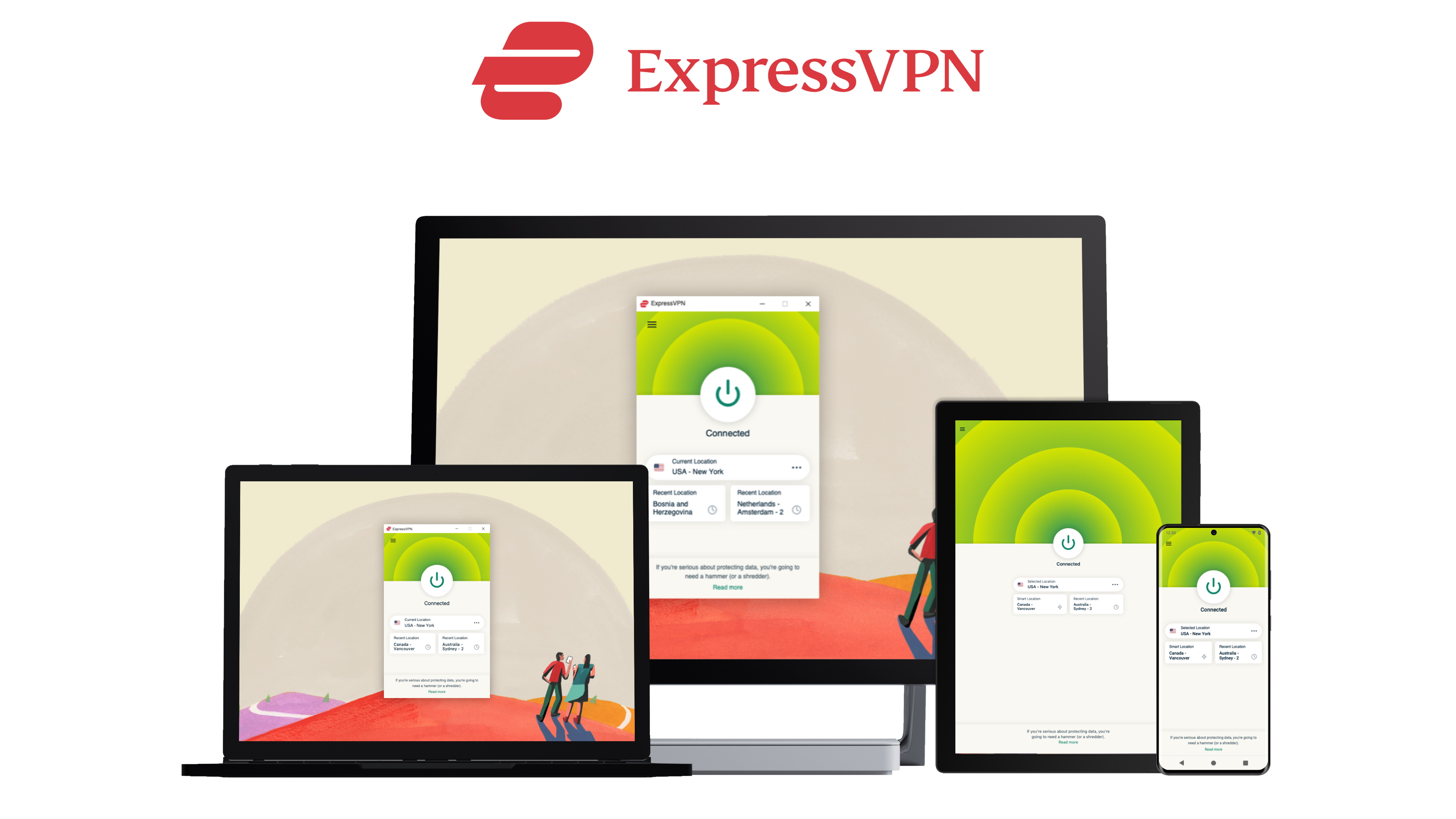Best VPNs for Snapdragon laptops - which VPNs work with Windows ARM?
With the new chips rising in popularity, what's the best way to keep your online traffic secure?

Until recently, ARM-based Windows machines have felt like a bit of a novelty. Microsoft’s innovative line of Copilot Plus PCs powered by the Snapdragon X Elite CPU has completely changed this perception, but there are still some growing pains. This shift in processor architecture brings a set of new challenges for software developers, particularly VPN providers.
The issue is that while most Windows apps will run on Windows ARM natively, VPN apps can’t. VPN providers need entirely new VPN apps to work on Windows ARM, and only a few VPN providers have already developed compatible apps for this architecture.
If you’ve picked one of the best VPN apps that don’t support Windows ARM yet, don’t despair: providers are hard at work bringing Windows ARM VPN apps to the market as quickly as possible. In the meantime, we’ve put together a list of the best VPNs for Snapdragon Laptops that will work on your brand-new Windows ARM machine today.
My top 3 ARM VPNs
1. Surfshark - from $2.19 per month
Best VPN for Windows-ARM devices
A regular among our best VPN lists, Surfshark was quick off the mark to support ARM devices, to such an extent that it tops our list comfortably right now.
Packed with the same array of features you'd expect across all your Surfshark devices, which can be as many as you like thanks to unlimited simultaneous connections, the ARM-compatible experience is unrivaled right now, and impressively cheap too.
2. ExpressVPN - from $6.67 per month
Best for beginners
ExpressVPN has long been our go-to choice for those looking to dip their toe in the waters of VPN security, and it's no different with Windows-ARM devices either.
ExpressVPN's simple and effective interface, partnered with almost unmatchable security capabilities, make it a solid choice for anyone needing a VPN, though its price can put some off when compared to the competition.
3. Private Internet Access - from $2.03 per month
Best for power users
One of the oldest widely available VPN providers is still around and still proving why it's worth your attention. PIA was among the first to support ARM devices with its app, and hasn't held back on what's possible with it either.
With one of the most customizable experiences available across top VPN providers, and a server count that most simply will never get close to, PIA proves to be a great choice for the more experienced VPN user.
The best VPNs for Windows-ARM
Why you can trust TechRadar
The best Windows-ARM VPN overall

1. Surfshark
Surfshark is one of the few VPN providers offering a fully native app for Windows on ARM which means it’ll work on any Snapdragon laptop without any extra effort. This makes it an ideal choice for if you’ve just bought one of the latest Copilot Plus laptops. Surfshark consistently ranks among our top five VPNs due to its fantastic set of extra security features designed to keep your personal information safe, as well as a user-friendly experience. Surfshark is no slouch when it comes to speed either. With 3200+ servers in over 100 countries, you’ll be able to log in practically anywhere on the planet with a high-speed connection that enables access to hundreds of different geo-restricted content providers like Netflix and Disney+.
For me, one of the most compelling reasons to choose Surfshark is its truly unlimited device policy. A single subscription covers all your devices without any additional cost, making it perfect for families or tech heads with multiple IoT gadgets. Surfshark’s flexibility when it comes to device subscription is especially valuable if you’re integrating a new Copilot PC into your household. In addition to device coverage, Surfshark excels in security features, including DNS-based blocking that shields you from intrusive tracking and advertising. If you’re really concerned about your privacy, Surfshark’s advanced One suite includes antivirus tools, identity generators, deep web monitoring, and a private search engine.
The best for beginners

2. ExpressVPN
While ExpressVPN has yet to release a native ARM app, there’s still a workaround on Snapdragon laptops if you’ve already got an ExpressVPN subscription. ExpressVPN allows you to download a separate OpenVPN configuration file, and the OpenVPN project has already built a fully native Windows ARM client. All you have to do is download OpenVPN and put in your connection details and you can continue to enjoy the high-quality service that ExpressVPN is known for.
If you aren’t already using ExpressVPN, you should know that it is widely lauded for excellent connectivity, offering servers in 100+ countries with a stellar reputation for unblocking streaming services. You won’t need to worry about security, as ExpressVPN provides military-grade 256-bit AES encryption, ensuring that all your internet traffic is protected against hackers and government snoops. Although you won’t be able to access all of ExpressVPN’s features using OpenVPN, such as its proprietary Lightway protocol, you’ll still be able to access all of the core benefits of using ExpressVPN’s fantastic network infrastructure to browse the web and connect to streams.
Best VPN for power users

3. PIA
Private Internet Access has always been ahead of the pack when it comes to offering VPN apps across multiple operating systems with feature parity, and its fantastic Windows ARM app is no exception. PIA's vast server network spans over 29,000 servers in 77 countries, making it an excellent choice if you need high-speed connections for streaming, gaming, or torrenting. It’s also ideal if you’re not used to using a VPN, as PIA’s user-friendly interface and easy setup make it accessible to users of all experience levels. If you need more help, PIA ensures you’ll always have access to assistance whenever you need it thanks to 24/7 customer support available via live chat and email.
PIA offers strong privacy features, including a no-logs policy, a kill switch, DNS-level ad-blocking, and customizable encryption settings, ensuring your data remains protected. Not only has its no-logs policy been audited, but it’s also been tested in court multiple times which resulted in PIA handing over no data on their clients.
Other VPNs I've tested and recommend
4. Windscribe
Windscribe is another one of our top VPN providers that’s built a native Windows ARM app for Snapdragon laptops. Windscribe provides an excellent free VPN service with a generous 10 GB of monthly data when you sign up using a confirmed email. Windscribe offers over 10 free locations, including popular regions like Canada, Hong Kong, Switzerland, the USA, and Germany. Best of all, this free plan includes unlimited device connections making it an attractive choice for anyone who’s on a budget and wants to connect a new Snapdragon laptop free of charge.
While the free plan gives you all the features you’d get in the paid plan, for unlimited data you’re going to have to upgrade. Thankfully, Windscribe’s paid plan is competitively priced at just $9 per month, making it one of the most affordable VPN options available. Windscribe's customizable DNS-based block list, known as "R.O.B.E.R.T.," allows you to tailor your security settings to block specific categories of content and malware. All of this, combined with its strict no-logs policy audited by a third party, ensures that Windscribe is consistently one of the rare free VPNs we’d happily recommend.
How to choose a VPN for ARM-based laptops
While ARM architecture is not new and has been powering devices running Apple’s macOS and Linux-based systems for years, the transition to ARM architecture in Windows devices is going to be a bumpy one. Many software developers are essentially starting from scratch, as software designed for macOS or Linux cannot run directly on Windows due to differences in operating system design. This means that software must be compiled specifically for Windows ARM to function correctly.
To address these compatibility issues, Microsoft has developed an emulation engine called Prism, which allows Windows ARM devices to run x64 applications without needing to recompile them for ARM architecture. The emulator translates code from x64 applications so they can operate on ARM machines. However, this emulation process places extra demand on the CPU, as it involves decoding instructions to make them compatible with ARM architecture. While this enables many traditional applications to run on Windows ARM devices, it often results in increased power consumption and reduced efficiency compared to native ARM applications.
The problem is that you can’t take the same approach for VPNs. VPN applications rely on specific networking functions and kernel-level operations to secure and send internet traffic. While the Prism emulator can handle user-space programs, it cannot emulate programs that make kernel-level function calls. This limitation requires VPN providers to develop entirely new versions of their software that are natively compatible with Windows ARM architecture.
When searching for a VPN for your Snapdragon laptop, simply choosing a provider that offers a Windows version isn’t good enough. Instead, you’ll look for VPN providers that explicitly state they’re compatible with Windows ARM devices. On the plus side, given all the hype about Snapdragon laptops, any VPN provider that’s built a Windows ARM-compatible VPN app is likely to be quite vocal about it.
How we test VPNs
It’s really hard to tell how good a VPN is without actually taking it for a test ride, so that’s exactly what we do. Our testing process takes us through every facet of a VPN to give you the view.
Before we begin testing any VPN, we conduct a thorough fact-finding mission to gather as much information as possible about the service. This involves examining the list of features offered by the VPN, including server locations, protocols, encryption standards, and any additional capabilities like ad-blocking or malware protection.
We also take note of user reviews to understand how real-world users are experiencing the service. This gives us a better idea of potential problem areas to look for when we get into testing the client, as well as allowing us to shine a spotlight on areas of a VPN that people really appreciate.
Our privacy analysis starts before we even touch the VPN, too. Performing a deep dive into the VPN’s privacy policy is crucial to understanding how the provider handles user data, so we keep an eye out for any red flags in their data logging practices. While we’re here, we also assess the overall transparency and clarity of the policy.
Once we have a solid understanding of what the VPN claims to offer, we move on to hands-on testing. We download and run the VPN on various platforms it supports, including Windows ARM, to check for feature parity across different devices. We pay special attention to any differences between desktop and mobile versions, as these are usually pretty different from each other
While we’re testing the rest of the service, we conduct speed tests across multiple locations and times of day to evaluate connectivity and bandwidth performance. This helps us determine whether the VPN’s claims about speed and reliability hold true in practice.
Testing the speed of the service takes time, so we use this downtime to assess the VPN’s security by examining the range of protocols offered and checking for any unsafe protocols. We conduct tests for IP, IPv6, DNS leaks, and kill-switch effectiveness under various scenarios to ensure the VPN is really protecting your privacy.
After we’ve made sure the VPN is safe to use, it’s time to move on to value for money. We evaluate the overall usability of the VPN apps, focusing on the interface, ease of setup, and navigation.
This all happens in tandem with our streaming tests. The only way to know which VPN unblocking claims are true is to put them to the test, so we assess a VPN’s ability to unblock popular streaming services such as Netflix, BBC iPlayer, Amazon Prime, and Disney+ by accessing those services.
Finally, we assess the level of customer support offered by the VPN provider: We evaluate how accessible and responsive the support staff are, examining the available channels like live chat, email, and phone support. We also review the quality of guides and online help materials to determine whether users have access to comprehensive support resources for troubleshooting and general inquiries.
Frequently asked questions
What is the best VPN for Snapdragon laptops?
The best VPN for Snapdragon laptops is Surfshark. Not only is Surfshark one of the top VPN providers in the industry, but it also offers a fully native implementation of its VPN app for Windows ARM. This makes it an ideal candidate if you’re looking for reliable VPN protection on Windows ARM devices. Surfshark's unlimited device policy and comprehensive security features mean that at the moment, it’s the best choice for Snapdragon laptops.
Should I get a free VPN for Windows ARM?
It's essential to exercise caution when considering a free VPN for Windows ARM. Malware developers will most likely exploit the lack of native VPN apps from trusted providers on Windows ARM and fill the gap with their own "free" VPNs, which are a cover for stealing your data. While most free VPN apps should be approached with caution, Windscribe is a notable exception. Windscribe is a reputable VPN provider that offers a free plan, has been audited for quality, and is known for its strong privacy features. If you opt for a free VPN, Windscribe is a trustworthy option for Windows ARM devices.
Can I use any VPN on a Windows ARM device?
Not all VPNs are compatible with Windows ARM devices. Many VPN providers have yet to develop native apps for this architecture, meaning their current Windows VPN client can’t work on Windows ARM. You’ll need to choose a VPN that specifically offers a native Windows ARM app. Be sure to check the VPN provider’s website or contact their support to confirm compatibility with Windows ARM devices.

Sam Dawson is a cybersecurity expert who has over four years of experience reviewing security-related software products. He focuses his writing on VPNs and security, previously writing for ProPrivacy before freelancing for Future PLC's brands, including TechRadar. Between running a penetration testing company and finishing a PhD focusing on speculative execution attacks at the University of Kent, he still somehow finds the time to keep an eye on how technology is impacting current affairs.



